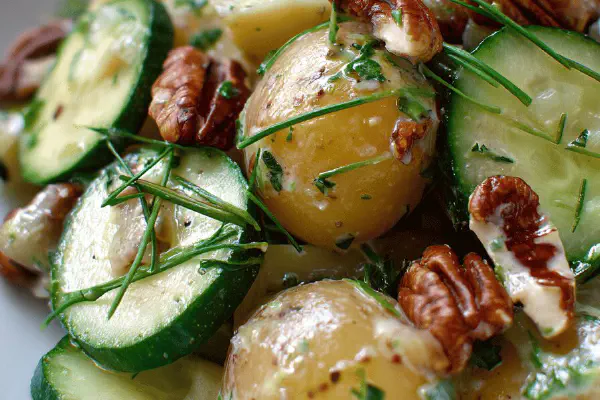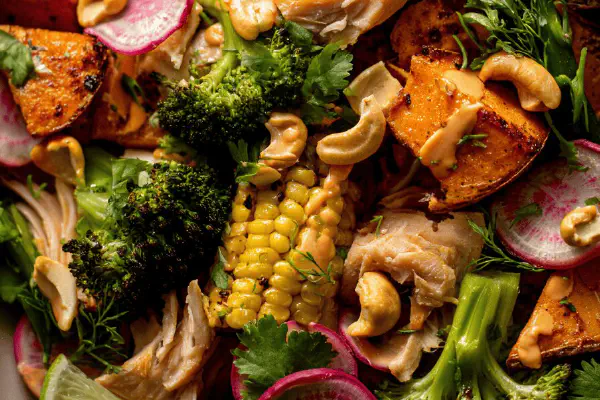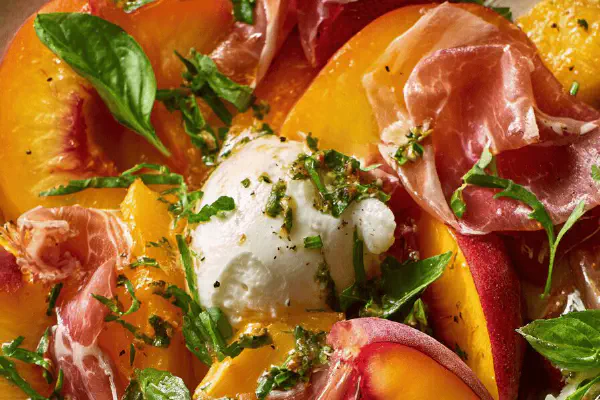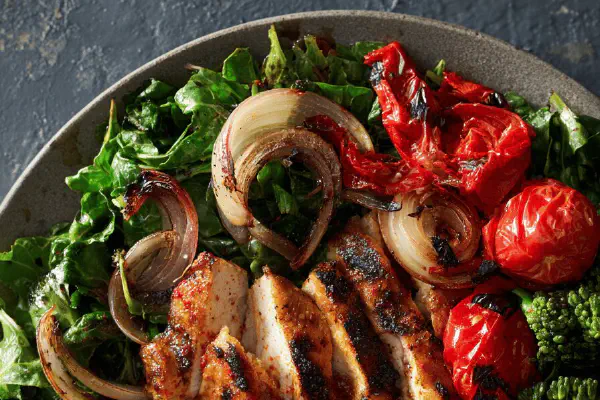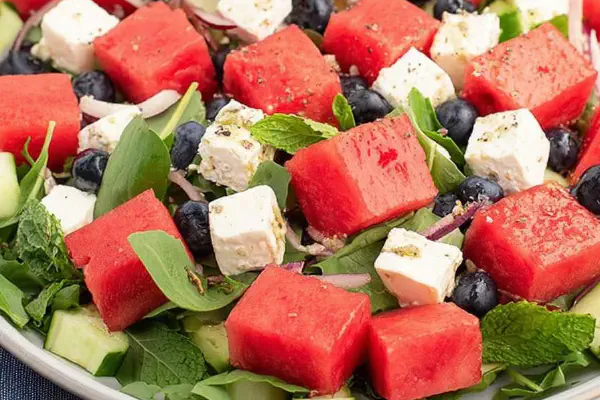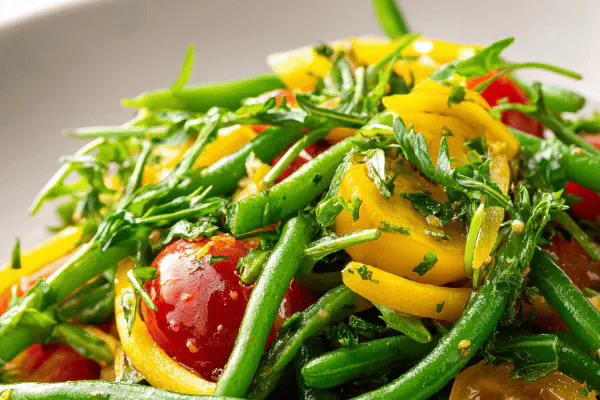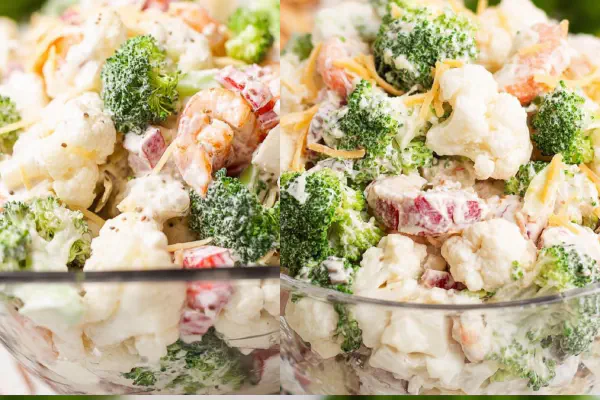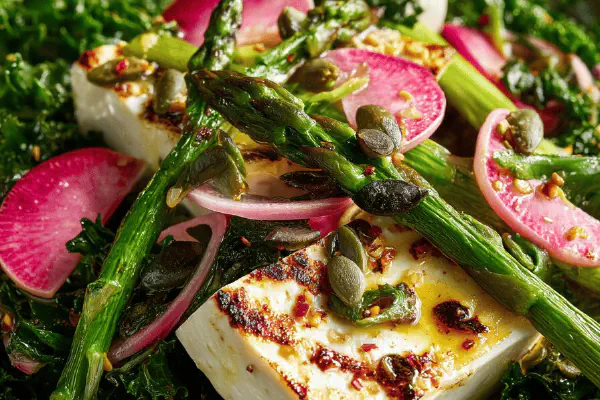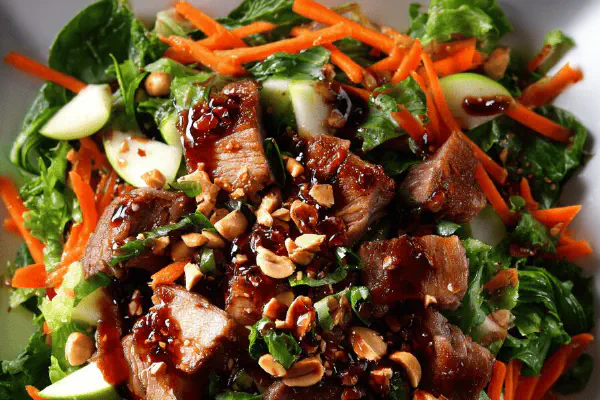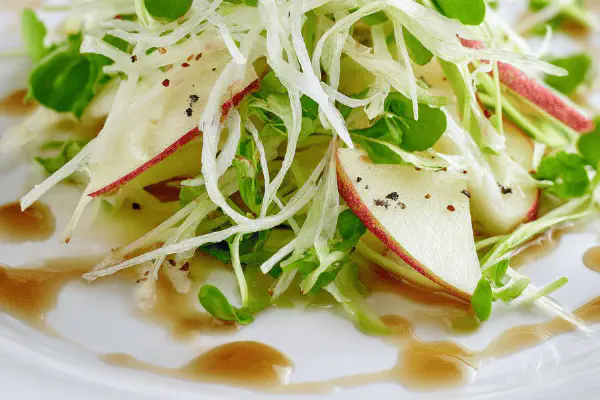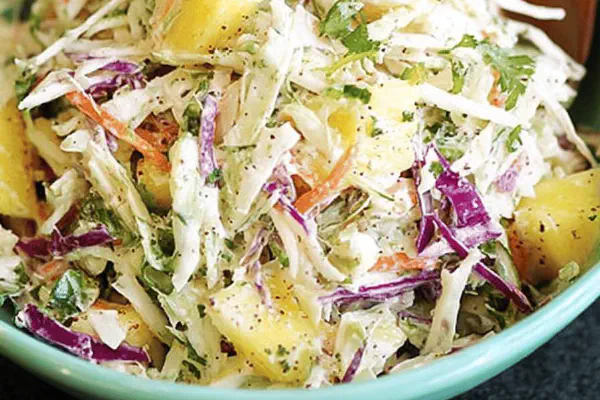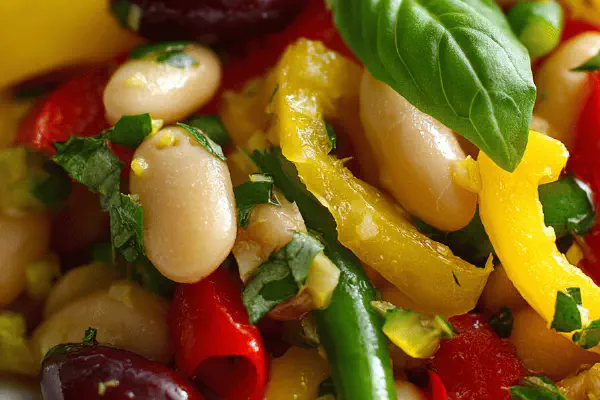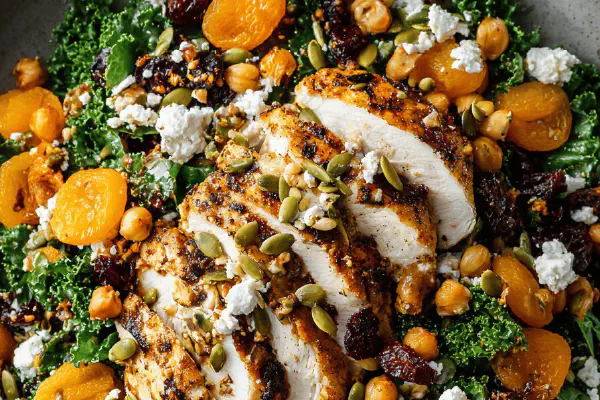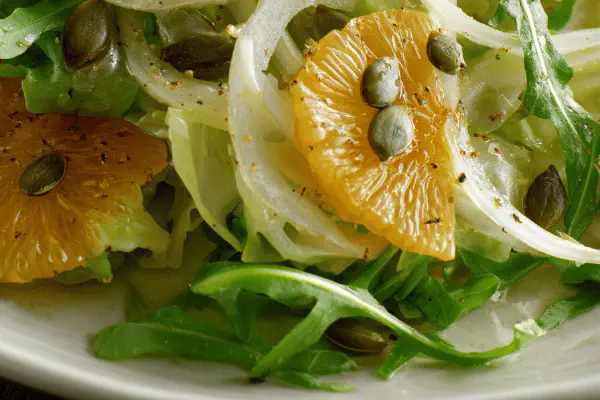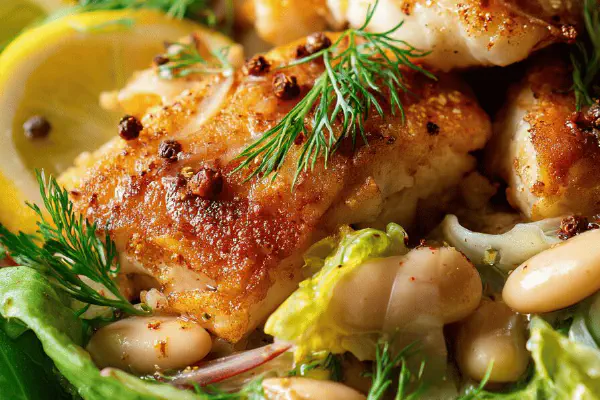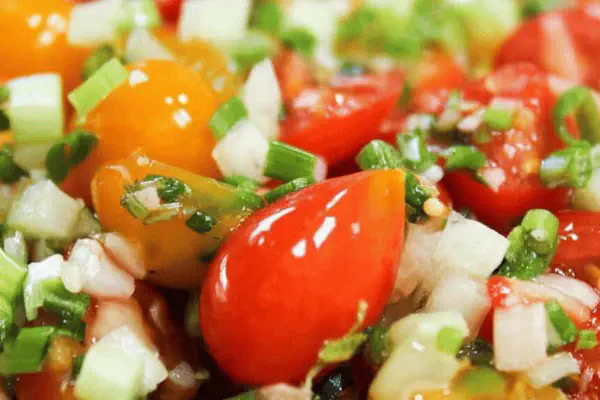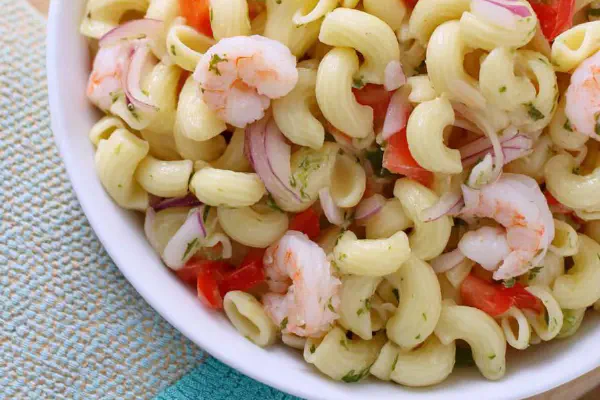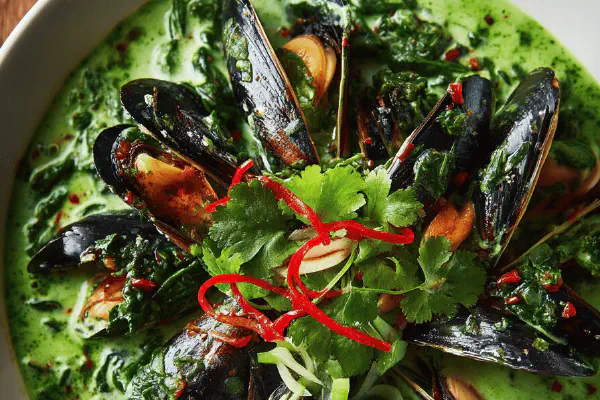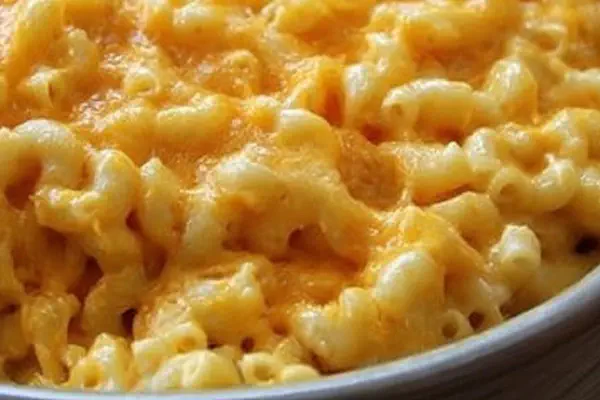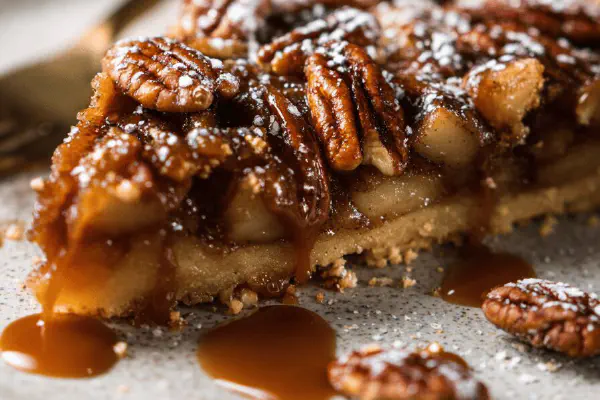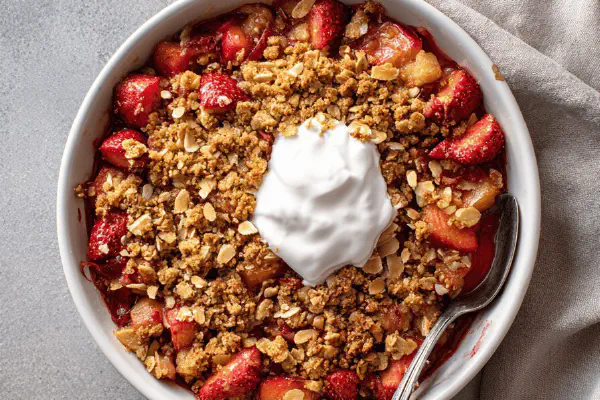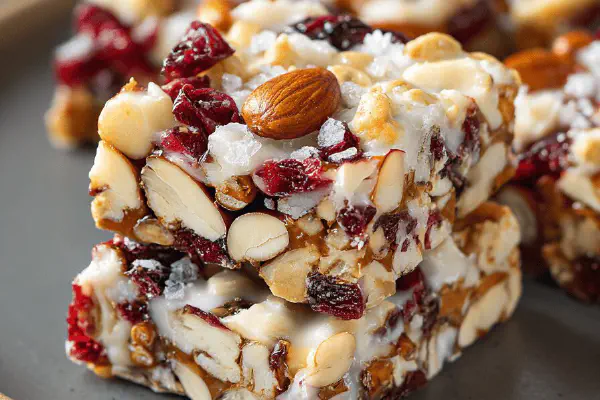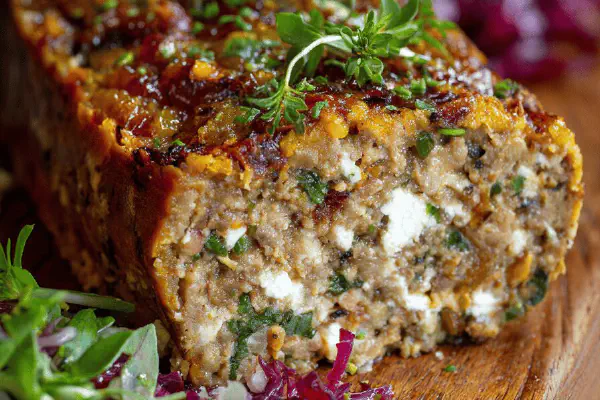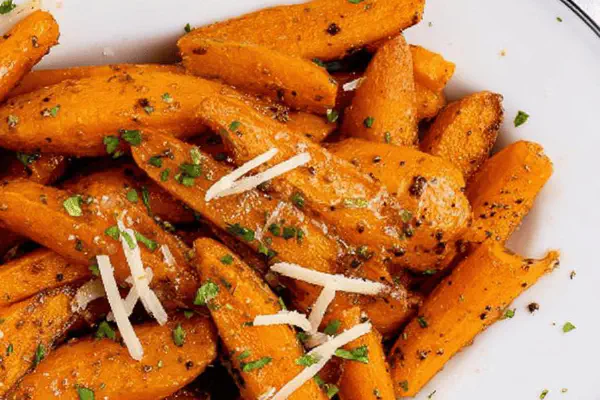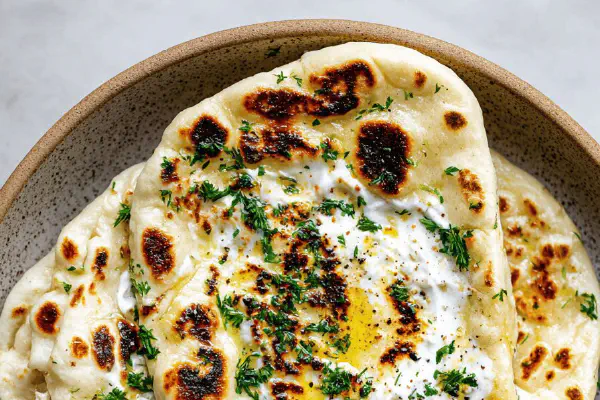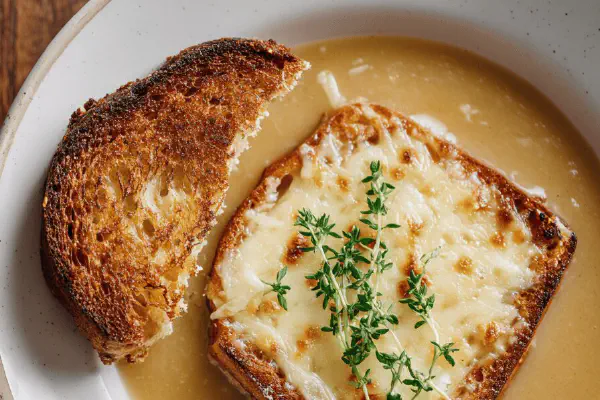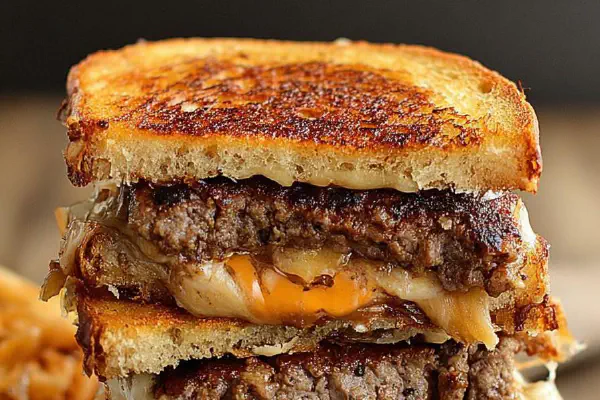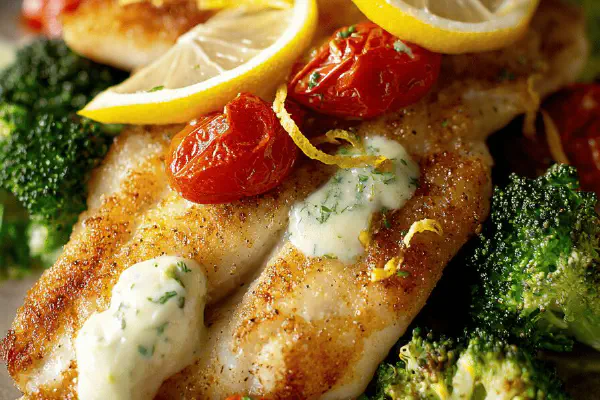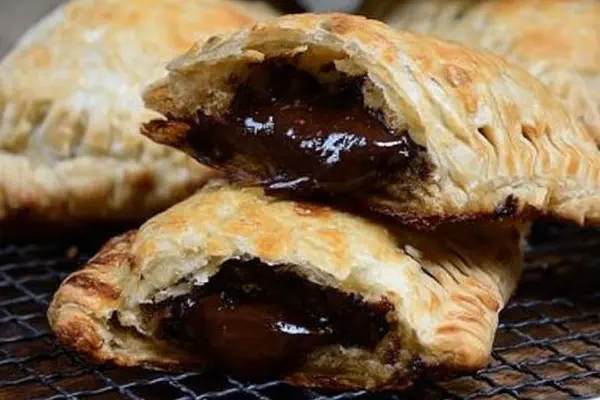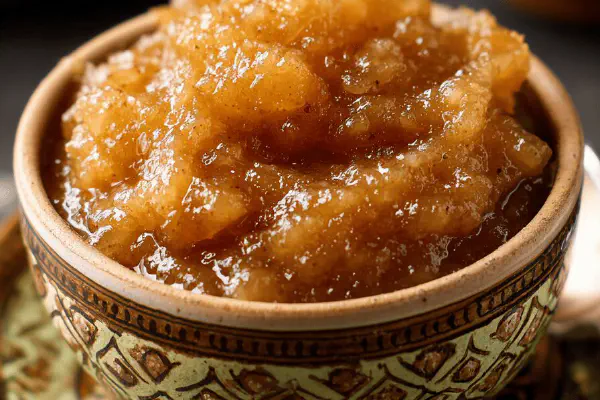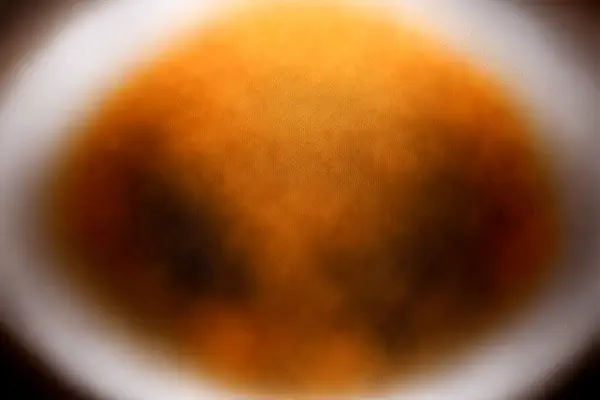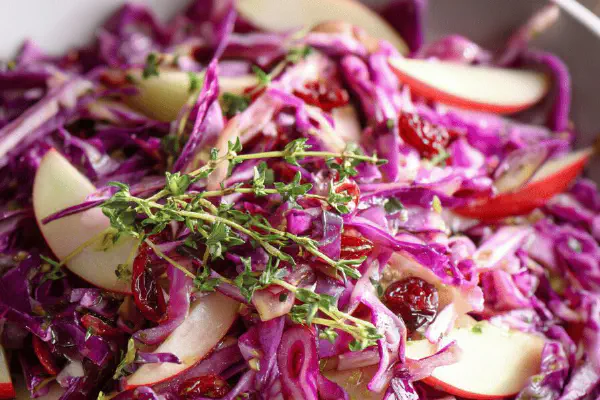
Rustic Gnocchi Potato Salad
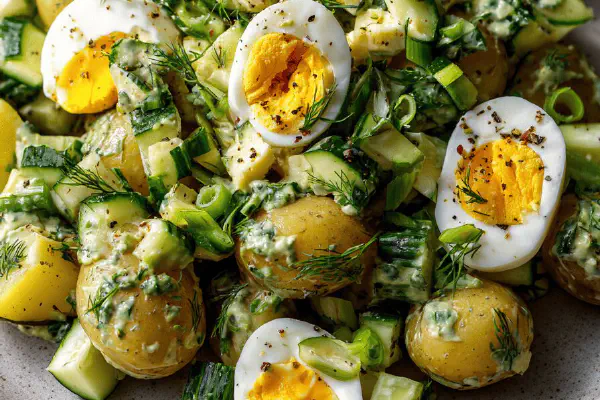
By Emma
Certified Culinary Professional
Before You Start
Ingredients
- 500 g (3 cups) baby new potatoes, halved
- 5 hard boiled eggs, peeled
- 25 ml (1 ½ tablespoons) avocado oil
- 20 ml (1 ¼ tablespoons) apple cider vinegar
- 20 ml (1 ¼ tablespoons) whole grain mustard
- 2 green onions, thinly sliced
- ½ cucumber, finely diced
- 2.5 ml (½ teaspoon) fine sea salt
- freshly ground black pepper
In The Same Category · Salads
Explore all →About the ingredients
Method
- Drop the halved potatoes into a large pot. Salt the water well; it should taste like the sea. Cover with cold water then bring slowly to a boil over medium heat. Look for when the water boils gently and potatoes thicken. Cook 20 to 25 minutes, until you can easily poke through without them collapsing. Don’t overboil, keep a firm bite.
- Meanwhile, crack the hard boiled eggs into a bowl and bash lightly with a fork or potato masher, leaving chunky pieces. You want texture, not a paste.
- Drain potatoes promptly, rinse briefly with cold water to stop cooking, then let them cool just enough to handle – warm but not hot.
- In a large mixing bowl, add smashed eggs and halved potatoes. Toss with avocado oil, apple cider vinegar and whole grain mustard. The mustard whole seeds add bursts of flavor and bite. Then fold in green onions and diced cucumber for crunch and freshness.
- Season with sea salt and grind in black pepper. Taste, then add more oil or vinegar if it feels dry or flat. I often add another splash of vinegar for brightness or a dash of oil if it needs softness.
- Mix gently but thoroughly. The warmth from potatoes will help the dressing meld into everything. Let rest 10 to 15 minutes to let flavors marry. Serve lukewarm or just cool from fridge.
- Best served alongside grilled vegetables or a light roast. Can hold in fridge up to 24 hours but potatoes absorb dressing over time, so add extra oil before serving if dry.
Cooking tips
Chef's notes
- 💡 Start potatoes cold in salted water. Salt like the sea but not overwhelming. Watch for tiny bubbles rising slowly, not raging boil—that’s mush waiting. Check with fork near thinnest part. Potatoes soft enough to pierce but hold shape. Drain and rinse cold fast to stop cooking. Warm firmness is key. Hot potatoes will mash too much.
- 💡 Egg crushing: don’t pulverize. Leave chunky bits. The texture burst changes the salad’s character. Use fork or pestle, not blender. Less paste more bite. Rough eggs stop everything sliding together into a dull mix. Chunky feels rustic, breaks neat.
- 💡 Dressing stays loose. Whole grain mustard seeds add texture; don’t swap for Dijon—too flat here. Mix oil and vinegar in first, then fold mustard. Add green onions and cucumber after dressing binds. Keep crunch sharp, not soggy. Season late; taste and adjust mid-mix. Vinegar can brighten, oil tames dryness.
- 💡 Cucumber swap for celery saves strong vegetal notes; less bitterness, more crisp freshness. Slice cucumber very fine to blend texture but preserve snap. Alternatives: diced apple chunks or radish work but change flavor profile. Need crunch? Radish sharper, apple sweeter. Choose based on balance.
- 💡 After mixing, rest salad ten to fifteen minutes. Warmth from potatoes melds flavors. Don’t leave too long or potatoes soak dressing, dry out by next day. Before serving chilled leftovers, add splash more oil to revive softness. Texture shifts overnight, plan accordingly.
Common questions
How to know when potatoes are done?
Check by stabbing thin edge. Should go through with slight resistance. Not mushy, keep solids. Slow bubble rising is visual cue. Overboil makes glue. Cold water rinse stops heat fast.
Egg texture tips?
Crush gently. Aim for chunks not paste. Use fork, not blender. Rough eggs mix better texture, add interest. Smooth eggs lose character here. Can swap hard eggs for chopped soft egg if careful, but changes feel.
Salad too dry after chilling?
Add more oil right before serving. Potatoes absorb dressing overtime. Vinegar can disappear too. Don’t overdress initially. Chill tight with cover. Adjust fat when plating.
Can I replace cucumber?
Yes, try diced apple or radish. Apple adds slight sweetness, radish brings sharp bite. Both add crunch but shift flavor. Skip celery as it overpowers here. Choose based on freshness wanted.
